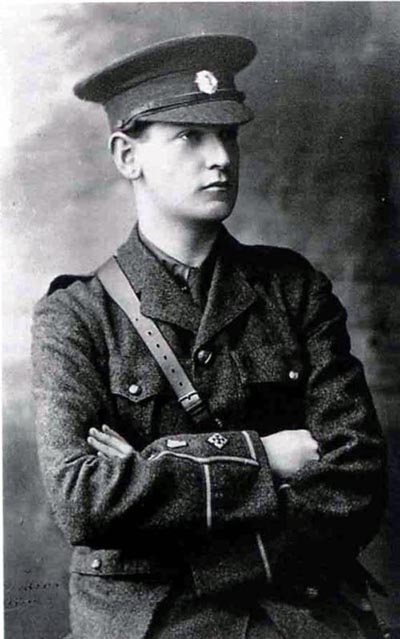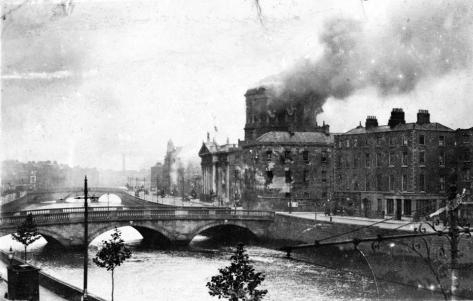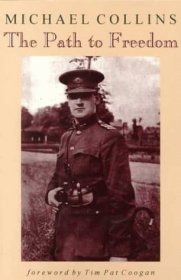Michael Collins is famous for his role in realizing what was “beyond our wildest dreams in 1916.” Yet fewer are familiar with the part he played in the ill-fated Rising himself.
In 1906, shortly before his sixteenth birthday, Michael Collins took a job as a clerk in London, where an elder sister was already established. Here he assuaged a keen homesickness for Ireland, by way of enthusiastic participation in London’s Irish community. The Gaelic Athletics League, the Geraldines Hurling Club, ceilis, and friends from Cork helped create a welcoming social island in the British metropolis. Continuing to write, he presented papers at political societies which supported Irish independence; where he became known as “a Wolfe Tone republican” in his outlook.
By 1914 he was secretary to the London and Southeastern district of the the Irish Republican Brotherhood (IRB), a clandestine body organizing the struggle for independence. In April 1914, along with his cousin and close friend Sean Hurley, he enlisted with the London Brigade of the Irish Volunteers. When the Easter Rebellion of 1916 was in its planning stages, he and a number of his boyhood friends from home all volunteered together.
During the Easter Rising, Collins served as staff Captain and aide-de-camp to Joseph Plunkett, at the Rising’s headquarters in the General Post Office building (the “GPO”.) There he and his comrades underwent a crucible of fire. Hundreds of vastly outnumbered and out-gunned republicans held out against thousands of British troops, under brutal artillery bombardment, for a week. There, and in the Rising’s aftermath, he saw many of his mentors and closest friends lose their lives.
Following the Rising he was imprisoned with over a thousand others. The execution of the Rising’s leaders thrust young men like himself to the fore. As he boarded the boat with fellow prisoners, he was already discussing plans for “next time.” While still interned at the prison camp, he was instrumental in re-organizing the survivors: first in a campaign of non-cooperation with prison authorities. Later planning the underground campaign, which would lead ultimately to Britain’s capitulation in 1921.
Read more
“The Assassination of Michael Collins:
What Happened At Béal na mBláth?”
by S M Sigerson
Paperback or Kindle edition here:
www.amazon.com/dp/1493784714
All other e-reader formats:
www.smashwords.com/books/view/433954
Read reviews:
http://www.rabidreaders.com/2014/12/03/assassination-michael-collins-s-m-sigerson-2/
“As a history and mystery buff I couldn’t help but keep reading..”
https://readersfavorite.com/book-review/the-assassination-of-michael-collins
“... a great read on a fascinating story …
The Assassination of Michael Collins is definitely a must-read if you have any interest in this period of Irish history, or any interest in Collins himself.”
















